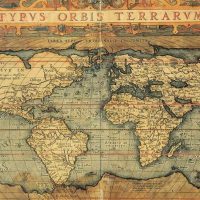Category: History Essay Examples
See our collection of history essay examples. These example essays are to help you understanding how to write a history essay. History is a fascinating puzzle with both personal and cultural significance. The past informs our lives, ideas, and expectations. Historians study the past to figure out what happened and how specific events and cultural developments affected individuals and societies. Also, see our list of history essay topics to find the one that interests you.
Though often overshadowed by his successors, Ramses (Rameses, Ramesses) I is a significant pharaoh from Egypt’s New Kingdom period and the founder of the Nineteenth Dynasty. The son of a noble family, the future pharaoh (then called Paramessu) served with Horemheb when both were soldiers, and when Horemheb …
Also known as Ramses the Great, Ramses (Rameses, Ramesses) II was the most significant Egyptian pharaoh of the Nineteenth Dynasty, the son of Seti I and grandson of dynastic founder Ramses I. Ramses II is believed to have reigned for 66 years and two months, assuming the throne …
The settlement of Ravenna may date from the Villanovan period of Italy, the earliest Iron Age culture of central and northern Italy. The fact that Ravenna began as a settlement on a lagoon, like Venice, may indicate even earlier habitation than the Villanovan era. Many European prehistoric settlements …
The Red Eyebrows were a rebel group formed in China in 18 c.e. against the regime of the usurper Wang Mang that helped defeat him, resulting in the restoration of the Han dynasty. The year 9 c.e. saw the Wang family reach the zenith of power. The family …
Deductions about the religious beliefs and practices of prehistoric people rest largely on archaeological evidence. Grave goods and burial practices, carved figures, cave paintings, and designs on potshards may be the only scraps left of a rich and intricate cosmogony. Graves dating back more than 50,000 years indicate …
The Roman Empire was the largest in the ancient world and at its height controlled the land around the Mediterranean and most of continental Europe, with the exception of modern-day Germany, Denmark, and Russia. The incipient Roman Empire led to the demise of the Roman Republic and the …
The Roman golden and silver ages represent the periods of Latin literature from the career of Cicero (106–43 b.c.e.) to the death of Augustus Caesar (14 c.e.) and from the beginning of Tiberius’s reign as Roman emperor (14 c.e.) to the close of Hadrian’s reign (138 c.e.), respectively. …
In the mid-fifth century b.c.e., when the great Greek historian Herodotus settled in the Athenian colony of Thurii in southern Italy, Rome had not yet consolidated its control over the peninsula. The struggle with the declining but still powerful Etruscans was ongoing. The Gauls, a Celtic people of …
Roman religious belief evolved over time. Many of the well-known gods, goddesses, and heroes of Rome were adopted from other cultures and civilizations. Greek mythology, with its focus on gods with humanlike characteristics, greatly influenced later Roman mythology. What we know about early Roman mythology comes from archaeological …
The Greeks had a strong belief in the importance of poetry, and the Romans continued this with a large number of poets, some of whom wrote short poems and others, like Virgil, composed massive epics such as the Aeneid. Other famous Roman poets include Lucretius, Catullus, Horace, Ovid, …
The deposition of the last emperor, Romulus Augustulus, in 476 c.e. by the Gothic chief Odovacar marks the fall of the Western Roman Empire and the subsequent transition from classic antiquity to the Middle Ages. The deposition of Romulus Augustulus was a chronological benchmark that was conventionally established …
Numerous stories have been drafted of the origins of Rome, mostly crossed with mythological and literary elements. Historical sources include epigraphic evidence, narrations from Greek or Roman historians, and various archaeological findings. According to legend, Aeneas disembarked in Italic shores, his son Ascanius founded Alba Longa, and their …
As Rome developed into a veritable power on the Italian peninsula and later throughout Europe, so too did the famous Roman Republic, based around the Roman Senate. But Rome’s first governmental system was monarchial. The Roman king had absolute power, referred to by ancient Romans as imperium. He …
The Rosetta Stone was discovered by French soldiers during the Napoleonic conquest and occupation of Egypt (1798–1801). With the same inscription in hieroglyphics, demotic (a later form of ancient Egyptian), and Greek, the text is a 196 b.c.e. commemoration to Ptolemy V Epiphanes. The French savants (intellectuals) that …
The popular conception of the Sadducees is a “straw man” set up in parallel with the Pharisees. The Sadducees disappeared after the Romans invaded Jerusalem and destroyed the Temple (70 c.e.). They left no written records, much less apologia. Historians relate negative reports from the antagonists of the …
The Sakya kingdom of early northern India is renowned as the homeland of Gautama Buddha. It should be distinguished from the Sakya school of Tibetan Buddhism that is associated with Vajrayana Buddhism. Sakya is identified as a territory on the borders of Nepal and India and had a …
The San and Khoi (or Khoi-Khoi) tribes are among the first identifiable tribes in southern Africa. The San, considered southern Africa’s indigenous population, were later displaced by the Khoi-Khoi in a struggle for survival in one of the planet’s most unforgiving regions. In earlier accounts the two groups …
Sanskrit is an ancient Indo-Aryan language that has for thousands of years become associated with religious teachings and beliefs, notably Hindu and Buddhist forms of thought. Its earliest use is associated with the migrating Aryan peoples who settled in north India and Iran and from whom several families …
Sappho is one of the most important of the lyric poets of the ancient Greek world. She probably lived from the middle part of the seventh through the early part of the sixth centuries b.c.e. Though the exact date of her birth and death are unknown, it is …
Sargon of Akkad was the first Mesopotamian ruler to control both southern and northern Babylonia thus becoming the king of Sumer and Akkad and inaugurating the Akkadian Empire. He established his capital at the newly founded site of Akkad in northern Babylonia; its exact location is unknown but …


